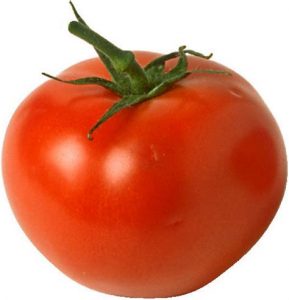 With all the talk of tariffs in the news these days, I’ve been doing a bit of research and came across an interesting Supreme Court case related to the Tariff of 1883 and the humble tomato. Our friend the tomato is almost universally referenced as a vegetable in common parlance, this despite the fact that it is undeniably a fruit in botanical definition. This became an issue when the two food categories were treated differently in said tariff legislation.
With all the talk of tariffs in the news these days, I’ve been doing a bit of research and came across an interesting Supreme Court case related to the Tariff of 1883 and the humble tomato. Our friend the tomato is almost universally referenced as a vegetable in common parlance, this despite the fact that it is undeniably a fruit in botanical definition. This became an issue when the two food categories were treated differently in said tariff legislation.
If you were a seller of produce back in 1883 and sold tomatoes the tariff became an enormous issue. You see, fruits were exempted from tariffs while vegetables were not. The government, being the government, decided to include as many things in its revenue scheme as possible and that included tomatoes.
A fellow named John Nix founded a company called John Nix & Co. which became the largest sellers of produce in New York. They shipped produce from Virginia, Florida, and Bermuda to the city. Naturally, Nix didn’t want to pay extra tariffs on tomatoes. This is one of the problems with such tariffs. They raise revenue, certainly, but that revenue is taken indirectly from tax payers. While Nix’s company certainly has to pay the tariff directly to the government, they recoup this loss by raising the price on their produce. Thus, any tariff is really just an indirect tax. That is beside the point.
The point here is that the case went all the way to the Supreme Court in Nix v. Hedden, Edward L. Hedden being the Collector of the Port of New York. Hedden collected that money and Nix wanted it back. From a botanical perspective, the tomato is undeniably a fruit and therefore clearly exempt from the vegetable tariff.
The Supreme Court decided, unanimously and against nature, the tomato is not a fruit, it is a vegetable. The argument being that it is commonly thought of as thus. It is eaten at dinner rather than dessert. Therefore, Nix had to pay the tariff.
Is there a moral anywhere to be found in all of this? I’m not sure. The government instituted a tariff that was vague in reference using simply the words fruits and vegetables in non-taxonomic terms. The Supreme Court decide what Congress was really trying to do was put a tariff on tomatoes even they are clearly fruit and thus changed the legal definition in regards to tariffs, although they had not the power to change the scientifically determined definition, for which we can all be thankful.
It does give us some insight into who is the one paying for these tariffs and why manufacturers and wholesalers tend to fight them to the bitter end.
And, of course, my summation. Even if the Supreme Court made Nix pay the tariff because the tomato is commonly thought of as a fruit, this does not change the nature of the tomato. It clearly fits the established definition of a fruit, like it or not. Me, I’ll go with science over government.
Tom Liberman
Pingback: Irish Court rules Subway Sandwiches not made with Bread - Tom Liberman
Pingback: Oh contraire Alan Dershowitz you can Count on the Courts - Tom Liberman
Pingback: Taxes and Perrier a Study in Law - Tom Liberman